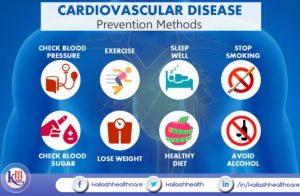
Embark on a journey through the world of Bulimia treatment options, where we unravel the various approaches to managing this eating disorder with a touch of intrigue and insight.
Let’s dive into the realm of treatment options, therapy roles, and the significance of a multidisciplinary approach in addressing Bulimia.
Bulimia treatment options
When it comes to treating bulimia, there are several common options available to individuals seeking help. These treatment approaches often involve a combination of therapies and interventions to address the physical and psychological aspects of the disorder.
Role of Therapy in Treating Bulimia
Therapy plays a crucial role in the treatment of bulimia by helping individuals address underlying emotional issues, develop healthy coping mechanisms, and change destructive behaviors related to food and body image.
Importance of a Multidisciplinary Approach
A multidisciplinary approach to managing bulimia is essential as it involves a team of healthcare professionals, such as doctors, therapists, dietitians, and psychiatrists, working together to provide comprehensive care that addresses the various aspects of the disorder.
Cosmetic Surgery

Cosmetic surgery can be a potential concern for individuals with bulimia due to the impact of body image issues and the underlying psychological factors that may drive the desire for aesthetic procedures.
Impact of Body Image Issues
- Individuals with bulimia often struggle with distorted body image perceptions, leading them to believe that altering their physical appearance through cosmetic surgery will improve their self-esteem and self-worth.
- This distorted body image can create a cycle of dissatisfaction where no amount of surgical enhancements can truly address the underlying emotional issues.
- Moreover, the pressure to conform to unrealistic beauty standards perpetuated by society and the media can exacerbate body image issues and drive individuals with bulimia towards seeking cosmetic procedures.
Addressing Psychological Factors
- Before considering cosmetic surgery, it is crucial to address the underlying psychological factors contributing to body image issues, such as low self-esteem, perfectionism, and the need for external validation.
- Therapy and counseling play a vital role in helping individuals with bulimia develop a healthier relationship with their bodies and self-image, reducing the reliance on external changes to boost self-confidence.
- By prioritizing mental health and emotional well-being, individuals can work towards accepting and loving themselves for who they are, rather than seeking validation through cosmetic procedures.
Foot Health

Bulimia nervosa can have detrimental effects on foot health due to the purging behaviors associated with the eating disorder. These behaviors, such as self-induced vomiting and misuse of laxatives, can lead to various complications that impact the overall health of the individual, including their feet.Individuals with bulimia may experience electrolyte imbalances, dehydration, and malnutrition as a result of frequent purging.
These factors can contribute to issues such as muscle weakness, fatigue, and decreased bone density, which can affect the structure and function of the feet.
Impact on Foot Health
- Potential consequences of purging behaviors on foot health include:
- Decreased bone density leading to stress fractures or osteoporosis
- Muscle weakness and fatigue affecting mobility and balance
- Nutritional deficiencies causing nerve damage or peripheral neuropathy
Importance of Monitoring Foot Health
- Regular monitoring of foot health is crucial for individuals with eating disorders to detect and address any issues early.
- Podiatrists can help assess foot health, provide treatment for any existing conditions, and offer recommendations for proper foot care.
- Proper nutrition, hydration, and overall physical health are essential for maintaining healthy feet and preventing long-term complications.
Heart Disease
Bulimia nervosa, an eating disorder characterized by binge eating followed by purging behaviors, can have serious implications on heart health. The relationship between bulimia and heart disease is significant due to the physical toll that the disorder takes on the body.Binge eating episodes, where individuals consume large amounts of food in a short period, can lead to weight gain and increased levels of cholesterol and triglycerides in the blood.
This can contribute to the development of atherosclerosis, a condition where plaque builds up in the arteries, increasing the risk of heart attacks and strokes.Purging behaviors, such as self-induced vomiting, laxative abuse, or excessive exercise, can also have detrimental effects on heart health. These behaviors can cause electrolyte imbalances in the body, specifically low levels of potassium, which is essential for proper heart function.
This can lead to irregular heart rhythms, cardiac arrest, and even sudden death.Healthcare professionals play a crucial role in addressing heart disease risk in individuals with bulimia. They can monitor cardiac health through regular physical exams, blood tests, and electrocardiograms. Additionally, healthcare providers can educate patients about the importance of nutrition, hydration, and avoiding purging behaviors to protect their heart health.
Impact of Binge Eating and Purging on Heart Health
- Binge eating can lead to weight gain, high cholesterol, and increased risk of atherosclerosis.
- Purging behaviors can cause electrolyte imbalances, specifically low potassium levels, affecting heart function.
- Irregular heart rhythms, cardiac arrest, and sudden death are potential risks of bulimia-related heart complications.
Health Diabetes
Bulimia nervosa, an eating disorder characterized by binge eating followed by purging behaviors, can have serious implications on an individual’s physical health, including an increased risk of developing diabetes.Irregular eating patterns associated with bulimia, such as frequent bingeing and purging episodes, can significantly affect blood sugar levels. Binge eating large amounts of food followed by purging through methods like vomiting or excessive exercise can lead to fluctuations in blood glucose levels.
These erratic spikes and drops in blood sugar can put a strain on the body’s ability to regulate insulin and glucose properly.It is crucial for individuals with bulimia to monitor and manage their diabetes risk carefully. Regular blood sugar monitoring, following a balanced and consistent meal plan, and seeking medical support from healthcare professionals are essential steps in managing diabetes in the context of an eating disorder.
It is important to address both the eating disorder behaviors and the potential health complications, such as diabetes, that may arise as a result of bulimia.
Eating Disorders
Eating disorders are serious mental health conditions that can have a significant impact on a person’s physical and emotional well-being. Among the various types of eating disorders, bulimia nervosa stands out as a common but complex disorder characterized by episodes of binge eating followed by purging behaviors. Let’s delve deeper into the world of eating disorders and explore the nuances of bulimia in comparison to other disorders.
Comparing and Contrasting Eating Disorders
- Anorexia Nervosa: Unlike bulimia, individuals with anorexia nervosa restrict their food intake severely, leading to significantly low body weight. Both disorders share a distorted body image and fear of gaining weight.
- Binge Eating Disorder: Similar to bulimia, binge eating disorder involves recurrent episodes of consuming large amounts of food in a short period. However, individuals with binge eating disorder do not engage in purging behaviors.
- Orthorexia: This relatively new eating disorder involves an obsession with healthy eating to the point of impacting one’s overall well-being. Unlike bulimia, orthorexia focuses on the quality rather than the quantity of food consumed.
Prevalence of Eating Disorders
Eating disorders affect people of all ages, genders, and backgrounds, with a prevalence that continues to rise globally. Research indicates that approximately 30 million individuals in the United States alone will experience an eating disorder in their lifetime. This alarming statistic underscores the urgent need for greater awareness and support for those struggling with these conditions.
Importance of Early Intervention and Treatment
Early intervention is crucial in the treatment of eating disorders to prevent long-term physical and psychological consequences. Recognizing the signs and symptoms of these disorders and seeking professional help can make a significant difference in recovery outcomes. With timely intervention, individuals can receive the necessary support and resources to address their underlying issues and develop healthier relationships with food and their bodies.
Outcome Summary
In conclusion, understanding the diverse treatment options for Bulimia is crucial in providing effective care and support for individuals struggling with this disorder. Dive deep into the world of Bulimia treatment options and discover a path towards healing and recovery.
Questions Often Asked
How does therapy help in treating bulimia?
Therapy plays a crucial role in addressing the underlying psychological factors contributing to bulimia and helps individuals develop healthier coping mechanisms.
What is the impact of body image issues on the decision to undergo cosmetic surgery for individuals with bulimia?
Body image issues can lead individuals with bulimia to consider cosmetic surgery as a solution, highlighting the importance of addressing these concerns in treatment.
How can healthcare professionals manage heart disease risk in individuals with bulimia?
Healthcare professionals can monitor the impact of binge eating and purging on heart health, provide education on healthy habits, and offer appropriate medical interventions to reduce the risk of heart disease.
What is the link between bulimia and diabetes?
Bulimia can affect blood sugar levels due to irregular eating patterns, emphasizing the need for monitoring and managing diabetes in individuals with eating disorders.
Why is early intervention important in treating eating disorders?
Early intervention can prevent the escalation of eating disorders, improve treatment outcomes, and promote long-term recovery and well-being.





